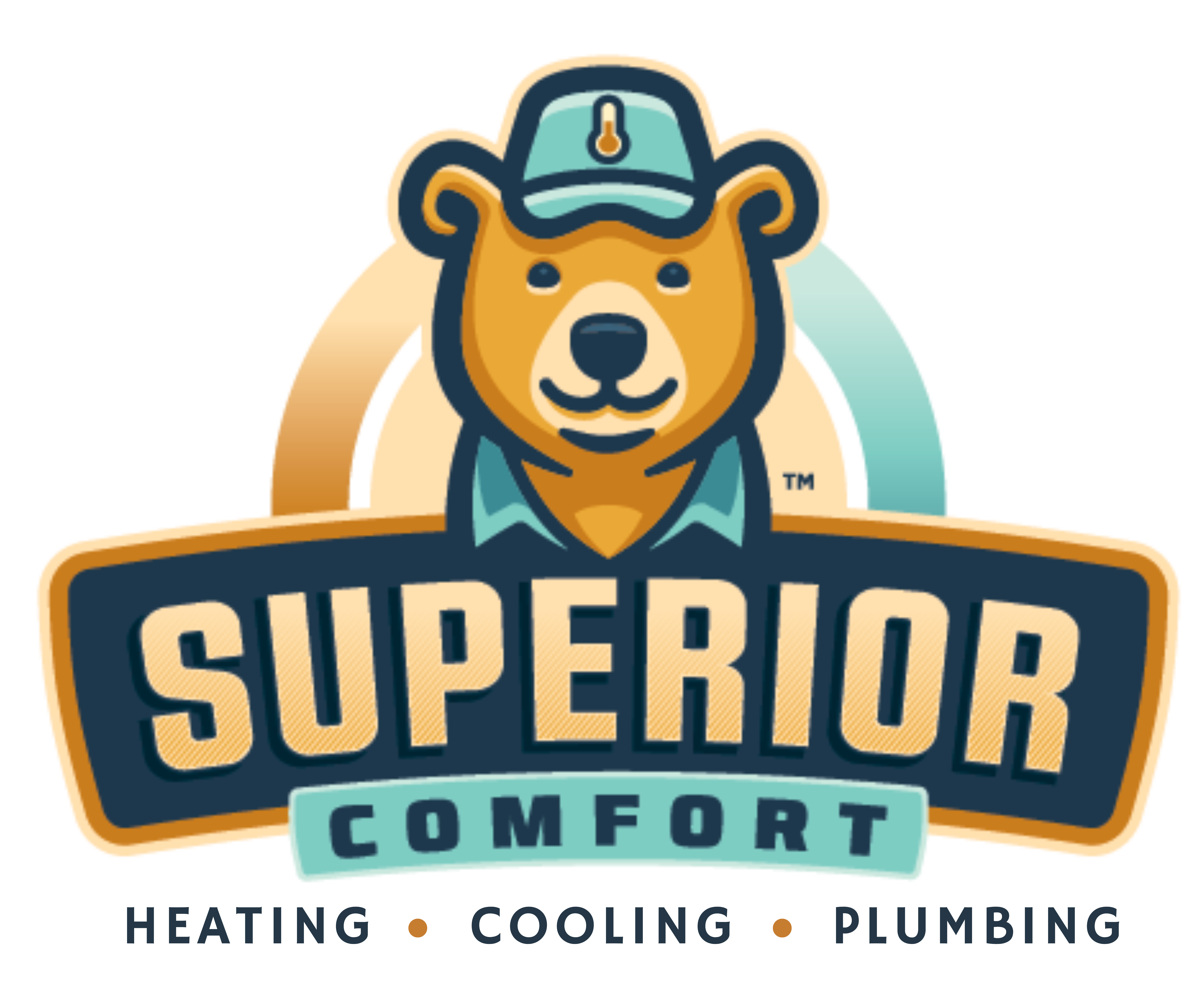How to Prevent Pipes From Freezing With HVAC Solutions?
Freezing pipes occur when temperatures drop low enough to freeze the water inside, causing it to expand and increase pressure. This can lead to burst pipes, water damage, and costly repairs. Due to inadequate insulation, pipes are particularly at risk in unheated spaces like basements, attics, or crawl spaces and those along exterior walls.
However, many homeowners don’t realize how their HVAC system can help prevent this problem during winter.
In this post, professionals from Superior Comfort Heating and Cooling outline practical tips for safeguarding your pipes during winter. For assistance, call 734-929-9820.
Optimize Your HVAC for Pipe Protection
Optimizing your HVAC system is a powerful way to protect pipes from freezing while improving your home’s energy efficiency. Here’s how to maximize HVAC effectiveness for pipe protection:
- Enhance Pipe Insulation: Upgrade insulation materials around vulnerable pipes, especially in unheated areas, to retain warmth.
- Install Heat Tape: Apply self-regulating heat tape to exposed pipes to maintain a consistent temperature and prevent freezing.
- Improve Ventilation Systems: Ensure proper airflow and humidity control to reduce condensation that can lead to freezing.
- Strategic Pipe Placement: Position pipes away from exterior walls or cold areas to minimize exposure to freezing temperatures.
- Plan for Cold Snaps: Use winterization techniques to prepare for sudden temperature drops, such as adjusting HVAC settings to circulate warm air effectively.
Utilize Zoned Heating Effectively
Zoned heating divides your home into specific areas, allowing you to control the temperature in each zone independently. This approach ensures efficient heating where it’s needed most, while reducing energy waste in less-used areas.
For pipe protection, zoned heating provides several benefits:
- Targeted Heating for Vulnerable Areas: Focus warmth on zones prone to freezing, such as basements, crawl spaces, or attics, to reduce the risk of frozen pipes.
- Energy Efficiency: By only heating the areas necessary, you lower energy usage while keeping critical zones warm.
- Enhanced Comfort: Customize heating settings to maintain comfortable temperatures in living spaces while safeguarding plumbing in less-used areas.
Keep Indoor Temperatures Consistent to Protect Pipes
Maintaining a steady indoor temperature is one of the most effective ways to prevent pipes from freezing. Sudden temperature drops inside your home can allow water in your pipes to freeze, leading to potential damage.
Here’s how to maintain consistent indoor temperatures:
- Set Your Thermostat: Keep your thermostat at a stable temperature, even when you’re away or asleep. Avoid drastic adjustments that could leave pipes vulnerable to freezing.
- Circulate Warm Air: Use your HVAC system to distribute heat evenly throughout your home, ensuring all areas, including less-used spaces, stay warm.
- Open Interior Doors: Keep doors between rooms open to allow warm air to circulate, especially in areas with pipes.
Schedule Regular HVAC Maintenance
Regular HVAC maintenance is essential to prevent pipes from freezing during the colder months. Seasonal checkups ensure your heating system operates efficiently, delivering consistent warmth to protect your pipes from freezing temperatures.
During these checkups, technicians inspect your HVAC system for potential issues, replace filters to maintain proper airflow, and clean components to improve efficiency. These steps help your system maintain stable indoor temperatures, reducing the risk of frozen pipes.
While skipping maintenance when your system seems fine is tempting, neglect can lead to unexpected breakdowns and costly repairs.
Final Thoughts: Winterize Your Home with HVAC Solutions
Preventing frozen pipes is essential to avoiding damage and maintaining a warm, functional home during winter. By implementing HVAC strategies like zoned heating, consistent temperatures, and regular maintenance, you can protect your plumbing and improve energy efficiency.
For assistance, contact Superior Comfort Heating and Cooling and ensure your home is ready for the cold months ahead.
Frequently Asked Questions
What are the signs that my pipes might be starting to freeze?
Signs of freezing pipes include strange noises, such as gurgling or banging, reduced water flow, or visible frost on exposed pipes. These symptoms indicate the water inside may be starting to freeze, putting your plumbing at risk. Address these signs promptly to avoid pipe bursts and costly repairs.
How can I insulate pipes to prevent freezing without HVAC solutions?
Wrap exposed pipes with foam or fiberglass insulation to retain heat and prevent freezing. These materials are easy to install and provide a protective barrier against cold temperatures. To block cold air more effectively, seal any gaps or cracks around pipes.
What should I do if a pipe bursts despite HVAC precautions?
If a pipe bursts, shut off your water supply immediately to prevent further flooding. Open faucets to relieve pressure and move valuables away from the affected area. Then, contact a professional plumber to address the damage and restore your plumbing.
How can I locate vulnerable pipes in my home?
Inspect areas with little insulation, such as basements, attics, or crawl spaces, as these are common spots for vulnerable pipes. Use temperature monitors or handheld thermometers to detect cold zones where pipes may be at risk. Identifying these areas early helps you apply proper insulation and protection.
 SEE OUR SPECIALS
SEE OUR SPECIALS FINANCING
FINANCING
 SCHEDULE A SERVICE
SCHEDULE A SERVICE

 CALL 734-818-7141
CALL 734-818-7141